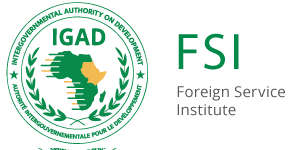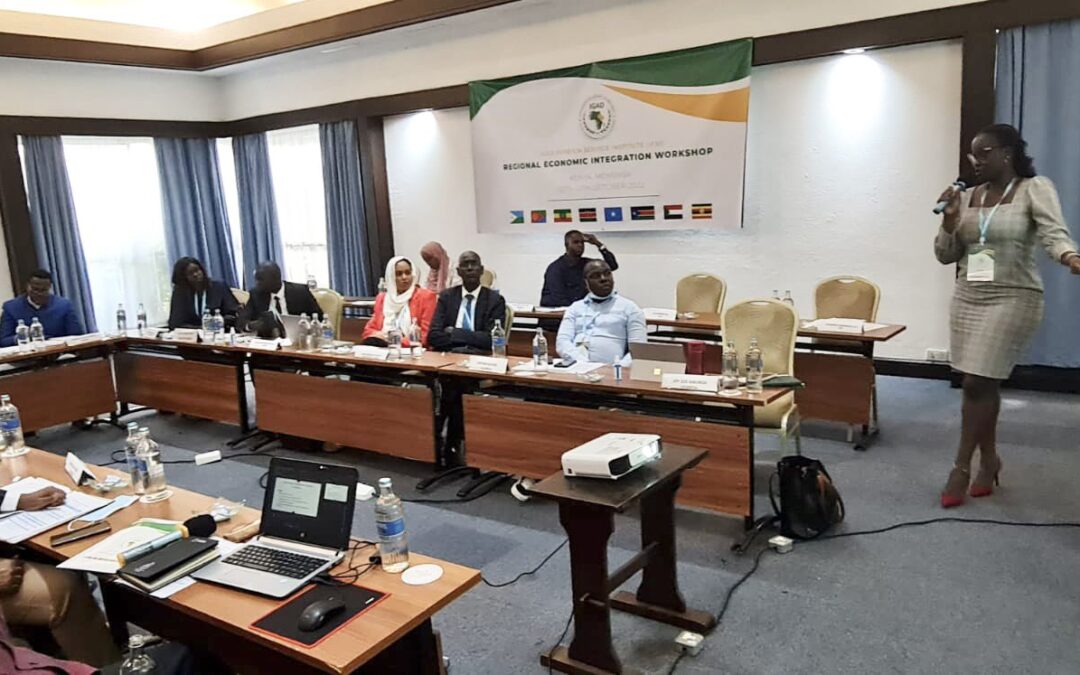October 12, 2022 (Mombasa, Kenya): The IGAD Foreign Service Institute (IFSI) concluded a three-day training on “Executive Training in Leadership and Diplomatic Skills: Regional Economic Integration” in Mombasa, Kenya, with the active participation of IGAD Member States. The workshop, held from October 10-12, 2022, aimed to broaden participants’ understanding of the complexities and opportunities in social, political, and economic integration within the Horn of Africa.
The primary goal of the workshop was to deepen participants’ knowledge of the processes that drive regional economic integration and how to leverage these efforts to promote trade, investment, and economic growth across the region. IGAD’s eight member states—Djibouti, Ethiopia, Kenya, Somalia, South Sudan, Sudan, Uganda, and Eritrea—share common economic interests, including in areas like energy, trade infrastructure, and borders, but also face shared challenges such as climate change and environmental issues, notably drought.
The region’s integration efforts are complicated by economic instability, which has been exacerbated by the COVID-19 pandemic. This workshop addressed these challenges head-on, to provide participants with a clearer understanding of the specific issues hindering regional economic integration. Using practical case studies, participants evaluated the advantages and challenges of deeper regional cooperation, exploring the requirements for economic integration and identifying ways to overcome existing obstacles.
Through group discussions and debates, representatives from the IGAD Member States examined how to contribute to the strengthening of regional cooperation to meet IGAD’s long-term economic integration objectives. By the end of the workshop, participants were better equipped to contribute to the region’s economic growth and integration process.
This training is conducted with the financial support from the European Union through the European Union Trust Fund (EUTF) through the Austrian Development Agency (ADA) under the IPPSHAR Program.




